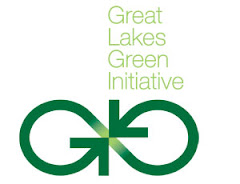
When you think of a sustainable lifestyle, many people don't fully recognize the contribution of the public library. I use mine all the time as a substitute for buying books and magazines. Most libraries now have a system where you can search for a book and put it on hold if it is unavailable. Once the book comes in, they will put it aside for you, send you an e-mail that it has arrived, and you just have to pick it up. I have a list of about 7 books that I am waiting for right now, and just picked up one a few days ago. The same applies to CDs and DVDs. So instead of spending hard earned money on a book or DVD that you will read/view once, you can borrow it and return it for someone else to use. I can't think of a more sustainable way to use all forms of media.
Libraries are also becoming in-demand computer centers. Our library, Troy Public Library, has devoted quite a bit of space to their computer center, and from my unscientific observations, it appears to be consistently full. I sometimes wonder why, until I think about the monthly expense of running high-speed internet in our home and realize that not everyone can afford this luxury. There is a economic justice component to sustainability, and the public library levels the playing field for us. No matter what type of income you have, if you live in a community you have equal rights and access to information, in the form of books, periodicals, electronic media and computer access.
I remember reading a biography of Benjamin Franklin by H.W. Brands quite a while ago. I recall that although his personal life was sometimes less than perfect, he was responsible for developing a public library system in the U.S. in 1731, along with his other achievements. At a time when books were scarce and expensive, he recognized the fact that if people pooled resources, they could afford to purchase books from England. Since then the public library system has been an integral part of all of our lives.
Libraries couldn't be more important than in times of scarcity, like now. Many people stop buying books, end magazine subscriptions and stop internet in their homes in an economic downturn, so the need for a good community library system becomes more important than ever. Unfortunately, when people stop working and businesses pull out of communities, tax revenues go down and libraries feel the effects. Right now my community, Troy, is threatening to shut down the library if a millage is not passed on Tuesday. People understandably don't want to pay more money when they don't have it themselves. But I do think back to Benjamin Franklin's time, when most people in the colonies were without many of life's necessities, and admire their desire to pull together resources for the common good. I hope our ancestors' example helps us understand our own priorities now.

No comments:
Post a Comment